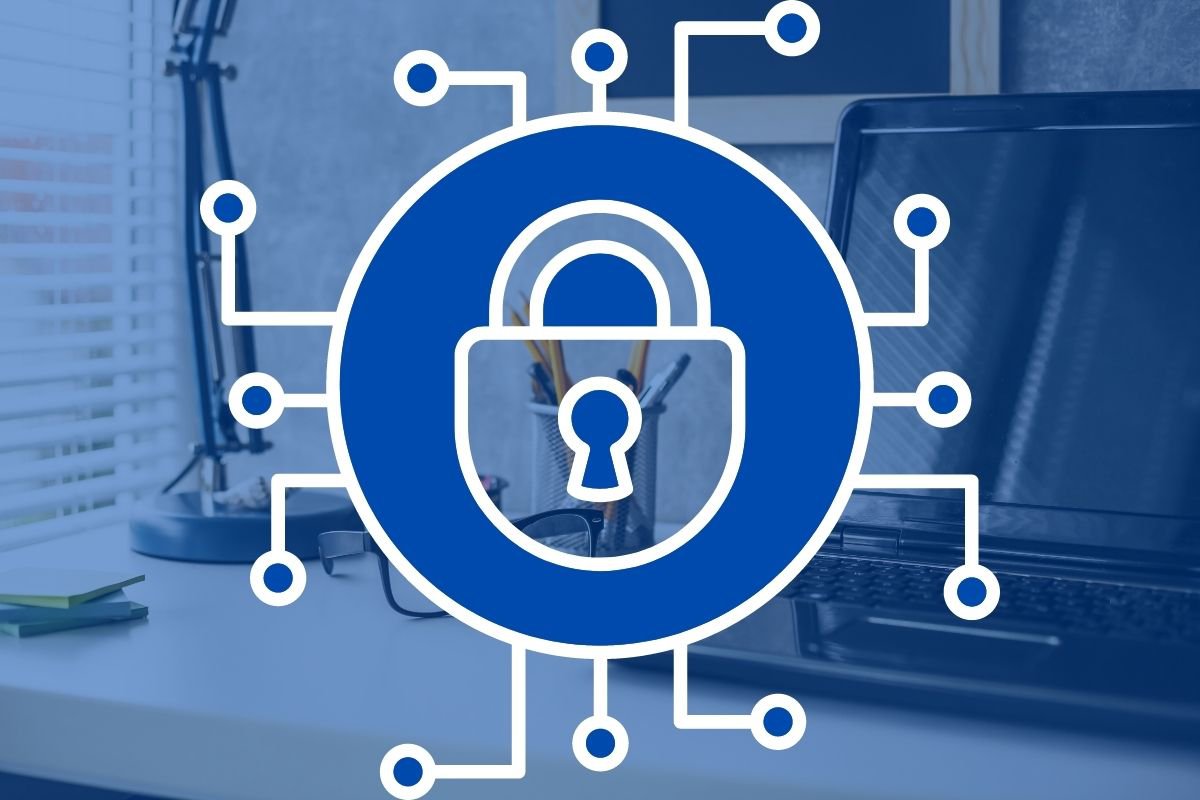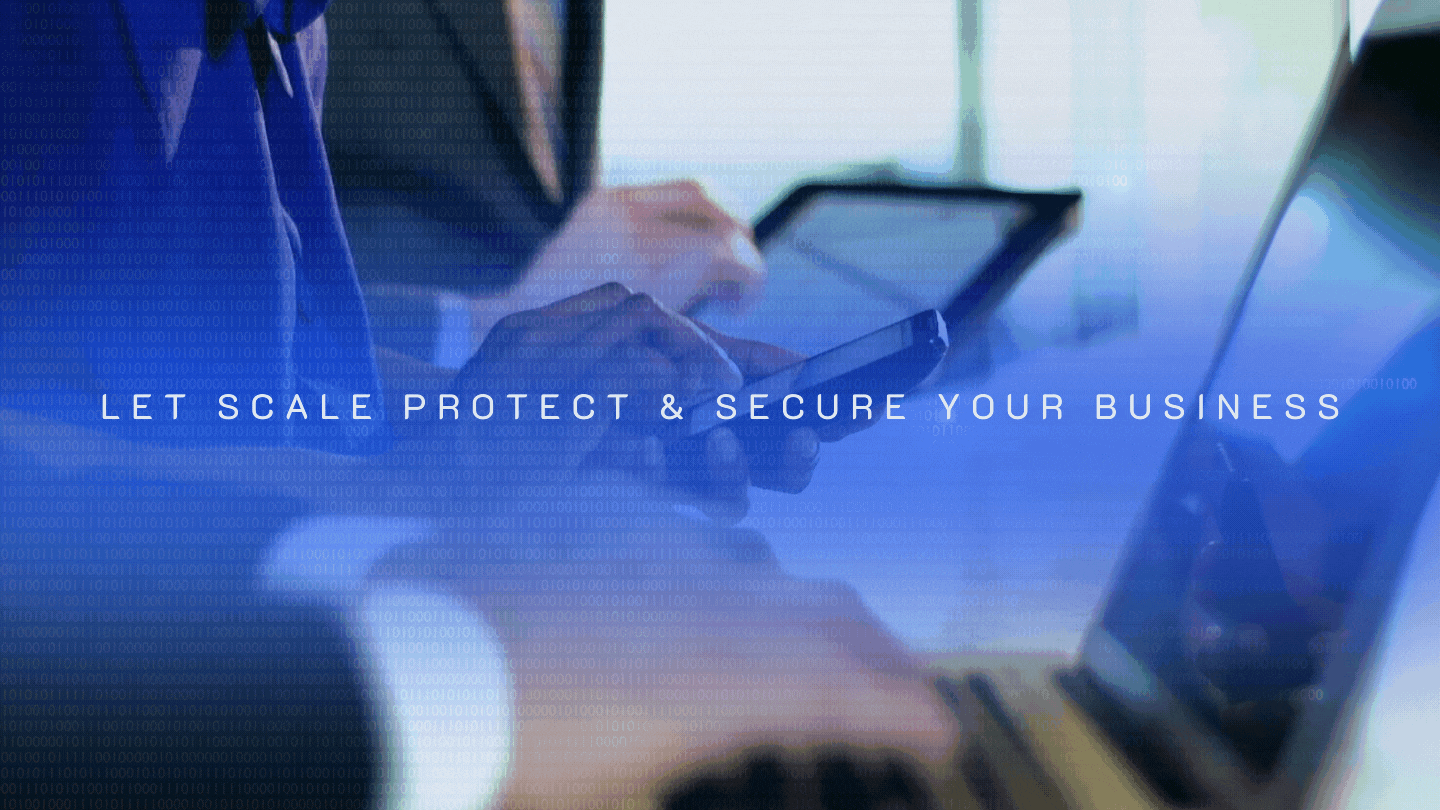You’ve probably heard the term “cyber security” at work or in the news and that it protects your data against hackers. This is true, but it’s also true that hackers don’t just steal data off of your work computer. They can steal it off of your home computer too which makes cyber security working from home of vital importance.
Here are eight tips for working from home more safely and how Scale can help make it happen.
What is cyber security?
Cyber security is how IT professionals protect computers, networks, servers, and other electronic devices from cyber attacks.
Cyber security risks while working from home
Cyber security for remote workers has become an even bigger issue in the wake of the coronavirus disease 2019 (COVID-19). INTERPOL, or the international police, has reported an increase in cyber attacks during COVID-19 on workers with weak or no at-home security measures in place.
The report also noted that cyber attacks have shifted away from individuals and toward larger companies. This means that even if you work at home for a major corporation, you could still be the victim of an attack. For hackers, it’s a low-risk, high-reward operation. They can do less work, because you have weaker network security, and they can get more valuable data, because you work for a larger company.
Hackers also use many attack methods to steal data. These include phishing emails, ransomware or malicious attachments, and attempts at cracking your password. All of these become more vulnerable when you’re not connected to your office network.
Security tips for your home computer
There are many ways to improve your security and safety. It’s far better to be proactive in securing your cyber workspace than having to react to a security breach. Factoring in as many of these tips as possible will guarantee you the best chance of working remotely safely.
1. Have a strong password.
It might be time-consuming to create a strong password that’s difficult to guess. But it’s also one of the best ways to protect your accounts. A random combination of upper and lower-case letters, numbers, and special characters is best.
Although you might be tempted to use the same password for every account, don’t do it. It’ll only put you at greater risk for a data breach. This is especially true if you’re working on your personal laptop to log in to work databases. If you‘ve saved passwords for personal accounts and online shopping, for example, a password breach could give attackers access to both your personal and work data.
It’s far better for companies and organizations to provide company laptops, tablets, or phones to avoid this risk. However, if this isn’t possible, use different passwords made of a string of random characters for the best defense.
2. Use two-factor authentication.
Even better than a strong password is the requirement of two-factor authentication (2FA) or multi-factor authentication (MFA). With 2FA and MFA, password theft becomes almost impossible, as hackers are faced with requiring more than one different method of logging in.
These additional log-in steps might include an authenticator app on a smartphone or even approval using your fingerprint.
3. Change the password often on your home router.
Your home router most likely came with a password, but many people don’t realize the importance of changing it. The longer you leave a current password as it is, the longer you give hackers to figure it out. Change your router password to a strong string of random characters as soon as possible to avoid a hack.
4. Use a secure Wi-Fi connection.
When working in the office is not possible, it is wise to work via secure Wi-Fi at home. Avoid using unsecured Wi-Fi networks in public spaces including restaurants or shopping malls, as these are targeted by malicious parties to collect private information.
5. Use a virtual private network (VPN).
A virtual private network (VPN) lets employees work securely from home on the same secure network that would have been available in the office. Using a VPN allows for the encryption of all of your data to protect information that may be private or sensitive.
You should always use the VPN when you access company data warehouses or information systems. This reduces the risks that come with using a home internet or a public network.
5. Install firewalls.
Firewalls act as filters to close communication ports, which help prevent threats from getting through to your computer. With a firewall, malicious programs, for example, are denied entry and can’t access confidential data. If a threat does breach the system, malware protection is the next line of defense.
6. Install malware protection.
Don’t overlook the importance of malware protection. It can protect you from spyware, adware, and worms to keep your computer and personal information protected.
7. Back up your files and data.
Backing up your information can feel like a chore. But just imagine the consequences if a major storm caused a power surge that fried your computer or server, and you didn’t have your data and files in another location. All of your information is gone, or at the very least, it’s highly vulnerable to an attack.
Consider storing your information in the cloud. That way, even if there’s a power surge or another event that causes you to lose data, you’ll still have access to it all.
8. Avoid phishing attacks.
Phishing usually comes in the form of a suspicious email. The email often asks the recipient to click on a link, or open a file. This acts as a portal for attackers to steal personal information, including log-in details.
Ready to protect your data?
Don’t put off securing your home computer from a potentially devastating cyber attack. Contact Scale Technology today at (501) 213-1732, or submit this form to request a consultation.



